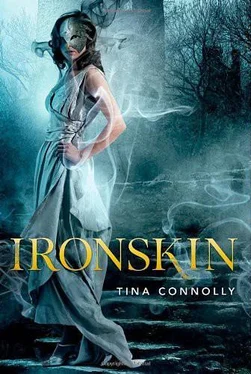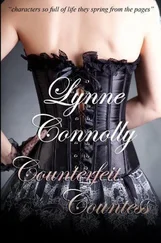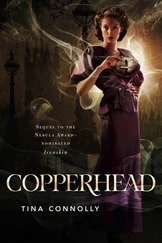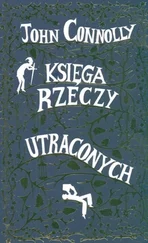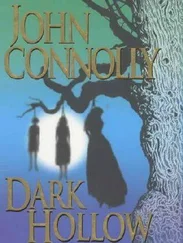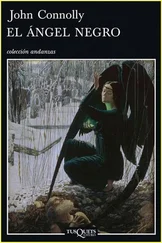“Of course, sir,” she managed, chin up. “Have I given you reason to doubt it already?”
He still studied her face, and she was surprised to find that it did not feel like he was judging her deformity, but was simply curious what made her tick. “When what you hope for appears on your doorstep, there is every reason to doubt its reality, Jane.”
She did not know what to say to that, but then from the front of the house the twisted doorknocker sounded, just as Cook bustled in with the potatoes.
“What, at dinner?” Cook said, but a glance from Mr. Rochart forestalled any other protest.
“Have them eat,” he said, setting Dorie down. He strode off toward the front of the house.
Jane took Dorie’s arm, guiding her back to the dinner chair, but Dorie wriggled free and was suddenly trotting after her father. Jane grabbed for her frock but missed, the cotton skirt slipping through her fingers.
Jane took off through the maze of rooms and halls after the fleeing girl, caught up with Dorie just behind the sapphire curtains that opened onto the foyer.
Dorie was peeping through. “Pretty lady,” she said, and clacked.
Jane stopped, looking at the foyer through the narrow gap Dorie had made. The short butler was saying, “An’ ye be human, enter,” and the woman swept over the threshold. Mr. Rochart bent to bestow a kiss on the visitor’s hand. “Miss Ingel,” he said. “The honor is mine.” She had kind eyes; she smiled and corrected him: “Blanche.”
An odd pair, Jane thought, for the woman, though more smartly dressed than Mr. Rochart, looked unformed next to him. Perhaps his hair stood up, perhaps his cuffs were mended, but still he wore his clothes and they did not wear him. Whereas the woman’s figure was good enough, and her coat and frock were smart, but she looked ill at ease, lost inside her fur and aquamarines, almost nervous. Her brilliant bobbed red hair was frozen into stiff pin curls that did not suit her face, which was plain, with pouched eyes and a large smashed nose like a prizefighter. Her eyes lingered on the sapphire curtains, then slid away, as Mr. Rochart ushered her into the red room of masks.
Mr. Rochart turned as he entered the garnet curtains. He glanced at the darkness behind the sapphire curtains, and even buried in shadow, Jane was suddenly positive his eyes fell on hers. Embarrassed at being caught spying, she drew back immediately, grabbing Dorie by the back collar of her dress and propelling her down the hall toward dinner.
Nerves made her wobbly on the worn soles of her old workaday boots. Dorie twisted free, scampering back toward the dining room, and Jane slid on the smooth floor of the hallway, which was poorly lit. Indeed, though there were rows of sconces, there was only one blue fey light left, at the far end of the hall. Dorie had already disappeared around the corner, so Jane set off firmly toward that, chin raised. She did not want to get lost on her way to the first good meal she’d eaten all day.
She was nearing the wall sconce when it suddenly winked out, and Jane found herself in the grey-black of a windowless hall at twilight. There was a dart of wind past her hair, as if dry leaves had flung past and departed, and a crackle that sizzled in the air like after-lightning. And then nothing, nothing to show that the fey technology had been there, except a bare copper sconce on the wall, barely visible as her eyes adjusted. She had seen the aftermath of fey lights or bluepacks winking out before, of course, but it was rare to catch one the moment when it fizzled and died. Always abruptly; no transition between something working and not—not like a candle that sunk into itself, giving you warning of its coming death.
And now here she was, in a black hallway, and no dinner in sight. Her jaw set, her teeth ground anger out as she willed herself calm. This was not the end of the world, just the end of a very long and trying day.
A small touch on her skirt made her gasp, almost shriek. In the dim light she saw a tiny figure with blond curls stretch out a hand.
At the other end of the hallway.
No smile crossed that doll-like face, but Jane’s skirt tugged again by that invisible hand, and Dorie turned and set off around the corner.
Patience, Jane counseled herself. Patience.
She followed the invisible tug on her skirt all the way back to a hot dinner.
Chapter 3
Sequins and Bluepacks
The first month went very slowly. So did the approach of spring, which refused to fully commit itself to the moor. Wind and rain ground on outside of the nursery window, and Jane and Dorie’s days continued in a relentless impasse. It occurred to Jane that she and Dorie were circling each other like two wounded creatures wanting to drink from the same stream, each wary of the other’s intentions, each unwilling to either strike or run away. The stream was the house they had to share, or perhaps it was the positive regard of the man who ran it. Dorie adored her oft-absent father, and Jane … Jane wanted to do a good job in her new position, that was all, end of story.
Dorie was not interested in anything but being left alone to amuse herself with flying dolls and light pictures, as she had been for all the five years of her existence. She did not start the day stubborn, and if Jane did not try to make her change, all was well. But she resented any attempt on Jane’s part to make her do even simple activities with her hands. As Jane had said that first day to Cook, Dorie’s way of doing what she wanted was so much easier that she had no reason to try Jane’s.
There were, however, two neutral territories.
Dorie would cheerfully walk or run around outside on the moor, anytime the rain lifted—though Jane had to keep a strict eye on her whereabouts to make sure she didn’t run into the forest. And she liked dancing. The gramophone’s bluepack had long since died, but someone had rigged it with a hand crank. So Jane sat and turned the handle, and Dorie danced. And if she danced a little too gracefully for a backward five-year-old … well, Jane could ignore that.
But dancing ability seemed little compensation for everything Dorie lacked. Of course, what she might be extra clever in was the fey talent.
But that would not serve her well. She would be shunned the first time she left the house. If people could not stand looking at Jane and the other victims, what would they do to a girl who moved dolls with her mind? At the least she would be an outcast, at the most.… Jane had heard of a few fey captured, their flickering blue forms studied in secret as the scientists tested for ways to fight back. A gruesome thought when it was the enemy you were talking about. If the subject were a tiny five-year-old girl … Jane shook her head.
Each night, Jane ran through the days in her head, assessing where she’d gone wrong, considering where she’d gone right. Dorie liked new things, and so when Jane found new activities, there was a short window of time where Dorie would try the new game before getting frustrated. Small progress, though hardly sufficient to introduce Dorie to the world.
Jane wondered if there was something she could withhold from Dorie, but what would that be? Her meals? The child was used to having everything she wanted, just the way she wanted. And in the case of meals, that meant eating with her fey tricks—wafting food through the air to her mouth—and not with fingers or fork. Jane told Cook to start sending a set of silverware up with Dorie’s meals from now on, but so far Jane had only placed the silverware beside Dorie’s plate, and not insisted. She had not quite had the fortitude to go into that inevitable battle.
After one not-too-terrible morning of watching Dorie dance in time to the three-quarter beat of a waltz, Jane started to wonder if Dorie had any natural math ability. Sometimes children afflicted in one area were extra clever in another, Jane knew—there had been a girl at the Norwood School who could hardly speak or look you in the eye, but she could add sums with startling proficiency.
Читать дальше
